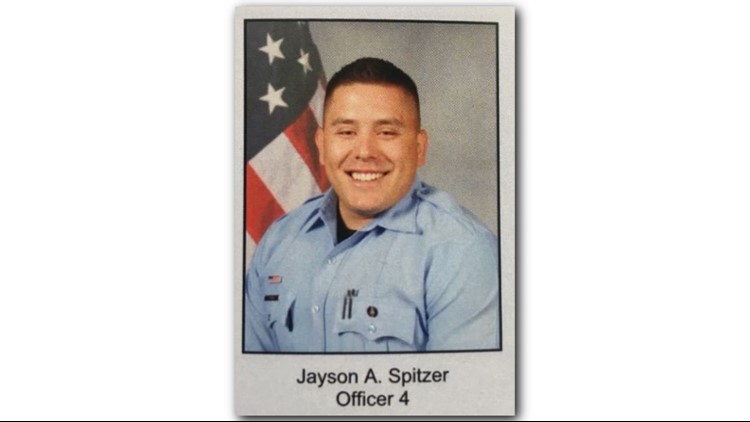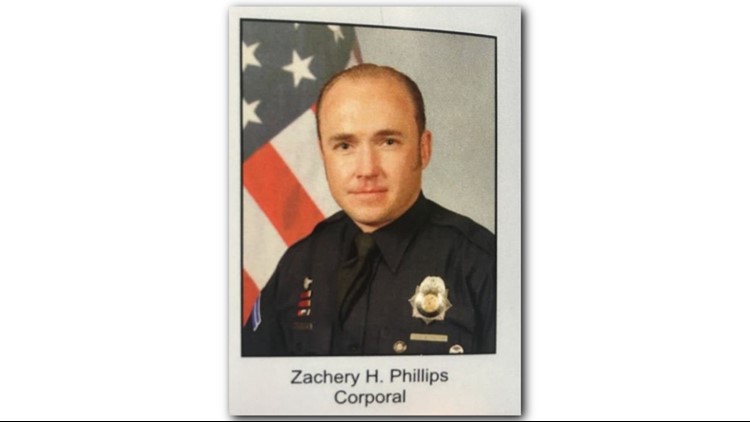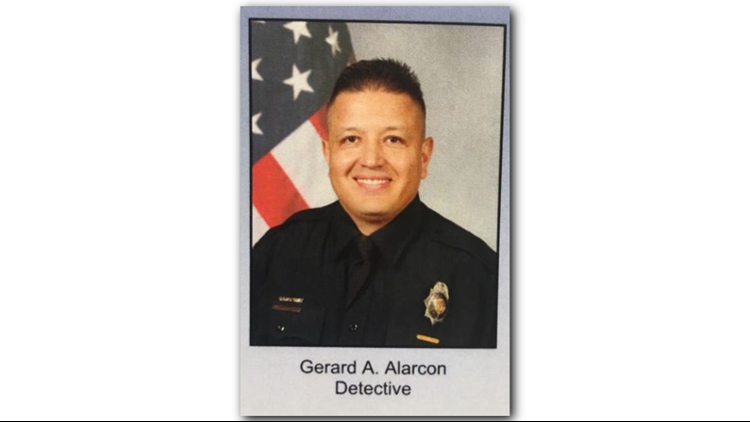DENVER - In the five years since the Denver Police Department changed its discipline rules, numerous officers are receiving special treatment and at least four have avoided being fired, a 9Wants to Know analysis revealed.
In those four cases, Denver police officers negotiated a settlement agreement with the Department of Safety to get lesser discipline in cases where they faced dismissal. These cases included allegations of soliciting prostitution, pointing a gun at another officer and deception.
After analyzing 272 discipline cases since 2014, 9Wants to Know found at least four more officers were able to get lesser punishments than what would have been prescribed by the department’s discipline matrix - a set of standards designed to make punishment fair and efficient for all police.
“It’s reasonable to expect that our decisions will be upheld on appeal, because of the amount of investigation that’s done,” said the Department of Safety Deputy Director, Jess Vigil. “We always don’t get it right, but we are right most of the time.”
In two cases analyzed by 9Wants to Know, officers who negotiated special deals were disciplined again – but still escaped full punishment.
One such case was examined by the Office of the Independent Monitor, who wrote in the 2017 annual report that “we believe that allowing the officer to violate the agreement without consequence was an error by the (Department of Safety).”
The Denver officers who negotiated discipline deals
For more detail on these cases, scroll to the bottom of this story.
Lonnie Schaible, a criminology professor with the University of Colorado Denver studies police discipline and said going outside the prescribed discipline range can raise some public concern.
“If you go outside of the matrix, and you do it in circumstances where it’s inconsistent or looks like you’re playing favorites, it undermines the sense of fairness about the disciplinary process internally and externally among the general public as well,” Schaible said.
“One officer can detract from all that effort that’s been done,” Schaible said. “All the great things that officers are doing out there can be broken down by one officer that’s engaging in violates the department trust.”
Most officers on the police force are not behaving in a way that results in discipline, but are instead following rules and protecting public safety.
As of April 20, 2018 there were 1,500 active Denver police officers. Since 2014, police records indicate that 225 received discipline greater than an oral or written reprimand, resulting in docked vacation days or suspension.
In those relatively few cases where an officer does violate a law or department policy, the offense is investigated and, most of the time, the officer receives an order of discipline that falls within the discipline matrix.
The matrix is designed to clearly establish guidelines for discipline by creating categories for different kinds of rule violations based on the circumstances. For example, some violations of the use of force policies are more egregious than others, which may lead to aggravating circumstances, or heightened penalties.
“Anytime you put something together that’s mechanical and rigid like this, there are going to be circumstances where there are maybe things that fall outside of that normal disciplinary recommendation,” Schaible said.
9Wants to Know found that some officers did get special breaks called “negotiated stipulations,” and many more officers are choosing to waive their rights to appeal by entering into agreements to settle discipline with the department every year.
The department of safety said most of the officers are choosing to waive their rights to appeal discipline because of a rule change in 2013. That rule change put the onus on officers to prove that the discipline was inappropriate during the appeal process. In the past, the city had the burden to defend its discipline case.
In the years since the change, a 2016 Civil Service Commission audit report found that the changes to the appeal process “appear to have reduced the number and duration of appeals.”
The discipline records show that in 2017, 93 percent of officers chose to waive their right to appeal and accept the discipline recommended by the chief of police.
Department of Safety Deputy Director Jess Vigil said that some of those agreements may have allowed other officers to receive lesser punishment as well.
9Wants to Know reporter Jeremy Jojola asked Vigil, “Is there a time when the department goes to the officer before these discipline orders are drafted and says ‘you’re gonna get this, but if you agree to waive your right to appeal, you’ll get this?’”
“There have been a few occasions where that has occurred,” Vigil said. “We determine whether it’s in the department’s interest to resolve this case -- we take into account whether the officer is willing to take responsibility -- there are cases we can’t resolve.”
Daelene Mix, Department of Safety Chief of Staff, also said in an email that some officers may choose to waive their rights to appeal discipline for a variety of reasons, including that some officers may be passed over for a promotion if he or she has a pending discipline case.
In a small number of cases, the negotiations are laid out in discipline documents.
Denver Police Discipline Settlement Agreements by 9news on Scribd
__________________________________________________________________________________
The Denver Cops who Got Special Discipline Treatment
Zachery Phillips - Soliciting Prostitution - Avoided Termination
A woman charged with prostitution in 2017 said during an interview with Denver police detectives that Corporal Phillips paid her for sex in the past. According to discipline documents, Phillips admitted the woman came to his home for a massage and slept in his bed, but he denied paying for sex.
Facing termination under the discipline matrix, Philips and the Department of Safety negotiated a deal where he received a 30 day suspension instead of getting fired, just as long has he remained on good behavior for a year.
His discipline order indicates the city gave him a break because he has “no significant prior disciplinary history” and a “good work history.”
Less than a year later, Phillips was disciplined again in April 2018 for having an ongoing relationship with a sexual assault victim that began in 2016. Phillips admitted the inappropriate relationship, according to documents, and was docked 16 hours from his paycheck.
Deputy Director of the Department of Safety Jess Vigil said Phillips wasn’t fired after the second discipline case because the time frame the inappropriate relationship with the victim occurred before the settlement agreement was signed in the prostitution case.
Michael Cordova - Deception - Avoided Termination
In August of 2017, Detective Cordova was seen on security camera footage elbowing another law enforcement officer he had a history of conflict with as the two crossed paths in a stairwell.
When asked about the incident, Cordova claimed he only bumped into the officer. The Department of Safety considered his claim “deception” and under the discipline matrix, Cordova could have been terminated.
However, the Department of Safety gave Cordova a16 day suspension and held his termination in “abeyance” as long has he remained on good behavior.
The city cited Cordovas numerous commendations,including a Denver Police Medal of Honor award a factor in reduced discipline.
In 2008, Cordova was accused of being deceptive when he was seen on camera arresting a man near Coors Field.
Cordova was criminally charged for smashing the man’s face into the ground, breaking his teeth and was eventually acquitted. Cordova claimed the man hit him first, yet several witnesses and the video contradicted his claim. Cordova was not disciplined in that incident.
Jeremy Owenby - Deception - Avoided Termination
In 2014, Officer Owenby got into a drunken fight with another Denver police officer who pulled gun while in Aurora. When Aurora police arrived, Owenby told the officers he would lie to Denver internal affairs about the fight.
Under the discipline matrix, Owenby could have been terminated for deception, however the city held his termination in abeyance, and he was suspended for 90 days.
The Department of Safety cited Owenby’s commendations and his admission to the misconduct as factors in his reduced discipline.
Anselmo Jaramillo - Prohibited Use of Weapons - Avoided Termination
In 2016, Sergeant Jaramillo was working in the Internal Affairs unit when he placed his loaded gun on a desk and pointed it at another officer when he became “displeased” over a conversation about how to use computer software.
Under the discipline matrix, Jaramillo would have faced termination, yet the Department of Safety decided to reduce his rank instead.
Jaramillo’s lack of discipline history and “exemplary work history” were factors in the reduction of discipline, according to documents.
Adam Lucero - Soliciting Preferential Treatment - Avoided additional 30 day Suspension
In 2016, Detective Lucero flashed his badge at a hotel in Loveland, Colorado with the intent to obtain hotel security footage for personal reasons, according to his discipline documents.
Lucero faced a 46 day suspension under the matrix, however the Department of Safety held 30 of those days in “abeyance” as long as Lucero didn’t violate any more rules.
Less than a year later, Lucero was found to have committed inappropriate force during an arrest when he incorrectly held up a suspect’s arms high while in handcuffs. The suspect suffered a broken arm.
Despite the subsequent violation, Lucero’s prior 30 day “abeyance” was never administered because he was under the “mistaken belief” the restraint was a “technique authorized” within the department.
Keith Graves - Misuse of a Taser - 4 day suspension instead of 10 days
In June of 2016, Officer Graves was responding to a complaint about people “illegally camping.” When he found one of them had a warrant, Graves attempted to arrest the suspect.
Through his body worn camera, Graves can be heard threatening to taser the suspect for not putting his hands on his head. Graves tasered the man and was later found to be in violation for inappropriate force.
Graves’ discipline documents point out the man wasn’t a threat to Officer Graves or anyone else. The documents say Graves should have used other options to get the man to comply.
Gerard Alarcon - Failed to secure gun, allowing it to get stolen - Docked 16 hours from paycheck
In August of 2015, Detective Alarcon’s personally owned gun was stolen from his personal vehicle. Alarcon was disciplined for failing to secure a firearm.
His discipline documents show he negotiated a discipline deal with the city and was docked two-days pay.
Jayson Spitzer - Violated Drunk Driving Probation - Avoided additional 20 day suspension
In April 2017, Officer Spitzer violated the terms of his probation. He was on probation after being found guilty for a drunk driving incident in 2016.
According to discipline documents, he faced suspension of 60 days, but 40 suspended days were “held in abeyance.”
Spitzer agreed, as part of the negotiated settlement, that he would abstain from using alcohol and comply with treatment recommendations.
Department of Safety Deputy Director Jess Vigil signed off on the agreement.
“He was someone who was really laboring under an alcohol dependence,” Vigil said of Spitzer. “It made some sense for my office to try and work with him.”
Editor's Note: This story was updated at May, 10 at 5:00 p.m.



















